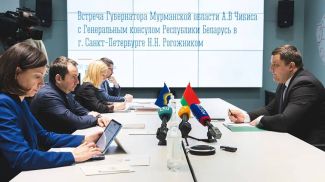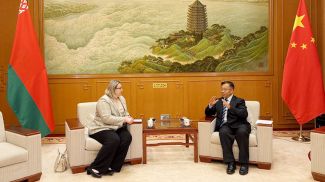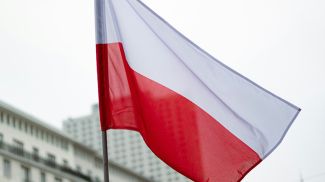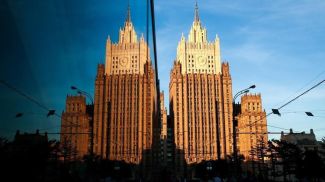MINSK, 3 April (BelTA) – Belarus is ready to help raise the image of the Central European Initiative (CEI) in the region, Belarus' Minister of Foreign Affairs Vladimir Makei said as he met with CEI Secretary General Roberto Antonione on 3 April, BelTA has learned.
Vladimir Makei noted that there are a lot of opinions regarding the CEI activity, including pessimistic ones. Belarus, however, speaks in favor of strengthening the role of this organization in the region.
“We are ready to invest even more efforts in strengthening the image of your organization,” the minister said. He added that the Central European Initiative promotes the integration of Eastern and Western Europe and that a number of Belarusian proposals have been included in the corresponding documents.
In turn, Roberto Antonione hailed Belarus' CEI presidency in 2017 and its efforts to develop the organization. In his opinion, Belarus' presidency was one of the most successful in the history of the initiative.
Following the meeting between Vladimir Makei and Roberto Antonione, the ministry played host to a seminar on the preparation of project applications for CEI co-financing. Attending the seminar were representatives of government bodies, public associations, cultural, education and healthcare organizations.
The CEI secretary general and workers of the organization updated the seminar participants on the financing instruments the organization uses, application rules, and decision-making.
Roman Romanovsky, Head of the European Cooperation Department at the Belarusian Ministry of Foreign Affairs, stated that over the period of its membership in the CEI Belarus has attracted more than €8 million of funds on research and projects in the economic, education, cultural and information sectors.
CEI is an intergovernmental association established in 1989 to develop regional cooperation. Currently, CEI includes 18 member states. Belarus joined the initiative in 1996. Belarus views the organization as an effective tool for expanding and strengthening regional cooperation through the implementation of specific joint projects in topical areas of activity, including efficient energy, sustainable development, ecology, science and technology.













